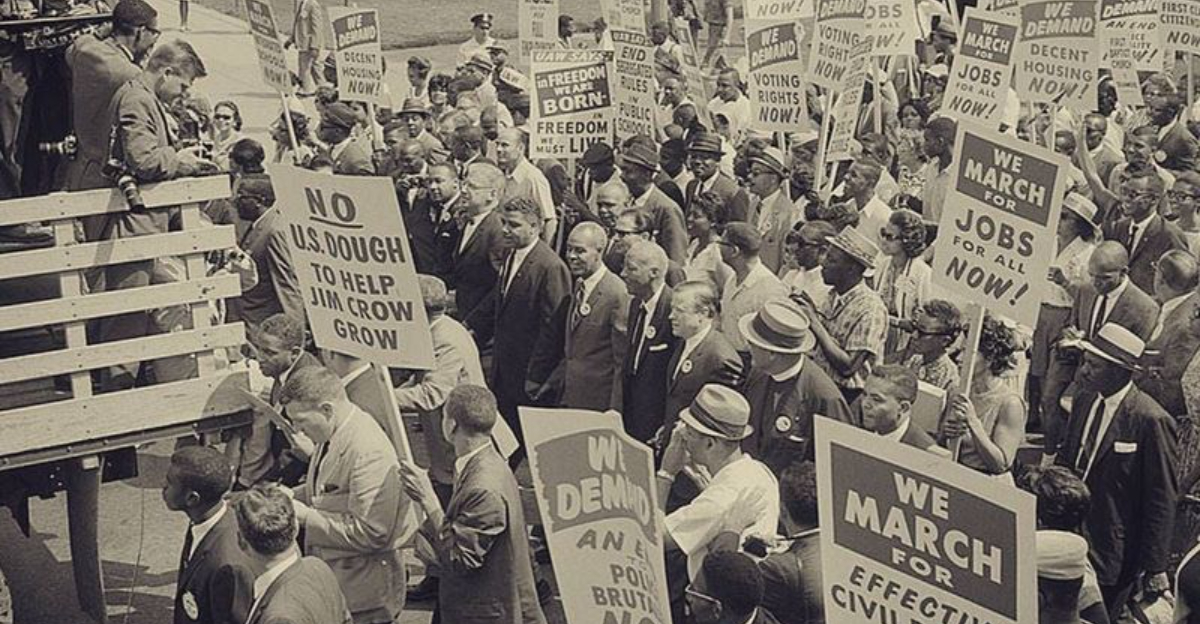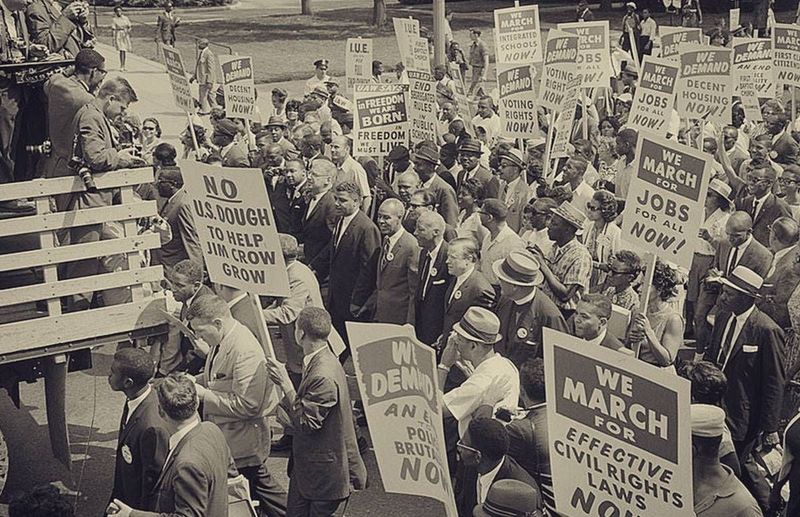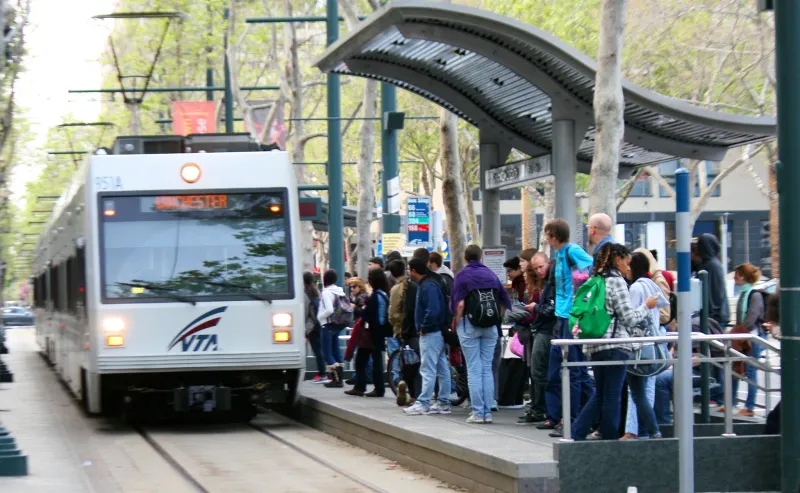The Baby Boomer generation, born roughly between 1946 and 1964, has left an indelible mark on the world. They were pioneers of change, breaking the molds of their predecessors, and creating institutions, technologies, and cultural shifts that continue to influence our lives today. However, their legacy is not without blemishes. While they have been instrumental in shaping modern society in numerous positive ways, there are also areas where their actions have led to challenges that later generations continue to grapple with. Here’s a look at 13 things Boomers absolutely nailed and 13 they completely ruined.
Economic Prosperity
Boomers were at the forefront of creating unprecedented economic growth. During their peak years, the economy flourished, driven by a robust manufacturing sector, innovative technologies, and increased consumer spending. Jobs were plentiful, and the middle class expanded, allowing many Boomers to achieve the “American Dream.” This era saw the rise of suburban living, with Boomers buying homes and cars, stimulating further economic activity. Their commitment to work ethics and determination helped fuel a thriving economy that would lay the foundation for future prosperity. Though not without its flaws, this economic boom provided opportunities for many.
Environmental Awareness
Boomers were among the first to sound the alarm about environmental issues, leading to increased awareness and activism. They championed efforts to protect natural resources, resulting in the establishment of Earth Day and significant environmental regulations. Their commitment to preserving the planet fostered a generation of environmental stewards, advocating for cleaner air, water, and conservation of wildlife. This legacy laid the groundwork for modern sustainability efforts. Despite the challenges, their early contributions helped raise the profile of environmental concerns, encouraging a shift towards greener practices in various sectors.
Technological Advancements
The Boomer generation witnessed and contributed to remarkable technological advancements. From the invention of the personal computer to the exploration of space, Boomers were at the helm of innovation. Their work in technology industries laid the foundation for the digital age, enabling connections across the globe and creating new opportunities in business and communication. Technologies developed during this time have become integral to modern life, shaping how we live and work. The Boomers’ influence in tech continues to resonate, with many of their innovations still impacting our daily lives and future developments.
Music Revolution
The Boomers spearheaded a musical revolution, giving rise to iconic artists and bands that defined a generation. From the Beatles to Motown, their influence on music was profound and far-reaching, reshaping popular culture. This era heralded a new wave of creativity, with Boomers embracing diverse musical styles and breaking traditional boundaries. Music became a powerful means of expression, reflecting the social changes and attitudes of the times. Their contributions to music continue to be celebrated, with many songs and artists from this period remaining beloved and influential to this day.
Space Exploration
The Boomer generation was captivated by space exploration, witnessing humanity’s first steps on the moon. They supported and celebrated these achievements, fueling interest in science and technology. NASA’s Apollo missions were a testament to human ingenuity and determination. Boomers were part of a collective experience that inspired countless individuals to dream big and pursue careers in science and engineering. This era of exploration left a lasting legacy, encouraging continued investment in space technology. The fascination with space continues to inspire new generations to explore the unknown and push the boundaries of what is possible.
Women’s Liberation
Boomers were instrumental in advancing women’s rights, advocating for equality in the workplace and society. Their efforts led to significant legal and cultural shifts, including greater access to education and employment opportunities for women. The Women’s Liberation Movement challenged traditional gender roles and sparked important conversations about equality and empowerment. Boomers’ activism helped pave the way for future generations to continue the fight for gender equality. This movement’s legacy is seen in the progress made toward gender parity, although challenges remain. The strides made during this time continue to influence discussions on women’s rights today.
Healthcare Innovations
Boomers witnessed significant advancements in healthcare, contributing to innovations that improved quality of life. From the development of vaccines to breakthroughs in medical research, Boomers were part of a transformative era in medicine. These advancements led to increased life expectancy and better management of diseases, revolutionizing healthcare delivery. Boomers’ commitment to scientific research and development set the stage for continued progress in medical science. Their legacy in healthcare is evident in the many technologies and treatments that have become standard practice, helping countless individuals lead healthier lives.
Higher Education Expansion
Boomers significantly expanded access to higher education, recognizing its importance in achieving personal and professional success. They championed educational reforms that increased enrollment and accessibility, paving the way for a more educated workforce. This era saw a rise in college attendance, with Boomers pursuing degrees in diverse fields. Their commitment to education contributed to greater social mobility and economic opportunity. The emphasis on higher education helped cultivate a culture of learning and innovation that continues to benefit society today. The legacy of expanded educational opportunities remains a testament to Boomers’ belief in the power of education.
Art and Literature
Boomers played a key role in the evolution of art and literature, embracing new styles and experimenting with different forms of expression. This period was marked by a surge of creativity, challenging conventional norms and inspiring future artists and writers. Their contributions led to a flourishing of diverse voices and perspectives in the arts, reflecting the social and cultural changes of the time. Boomers’ influence can be seen in the enduring popularity of literature and art from this era. The creativity and innovation of Boomer artists and writers continue to inspire new generations, leaving a lasting impact on the arts.
Civil Rights Movement
Boomers played a pivotal role in the Civil Rights Movement, challenging societal norms and advocating for equality and justice. Their activism led to significant legal and social changes, breaking down barriers for minorities and paving the way for a more inclusive society. From organizing peaceful protests and marches to supporting landmark legislation, Boomers were instrumental in pushing the boundaries of what was possible. Their efforts resulted in greater awareness and acceptance of diversity in America. This movement left a lasting impact, inspiring future generations to continue fighting for civil rights around the globe.
Consumer Culture
Boomers helped shape modern consumer culture, driving demand for new products and experiences. Their purchasing power influenced industries and trends, fueling economic growth and innovation. This era saw the rise of shopping malls, mass media advertising, and brand loyalty. Boomers’ desire for convenience and comfort led to the development of products that catered to their needs and preferences. While consumer culture has its critics, it also brought about greater choice and accessibility for consumers. The legacy of Boomer-driven consumerism is evident in today’s diverse and dynamic marketplace.
Travel and Tourism
Boomers embraced travel and tourism, contributing to the growth of the industry. Their desire to explore new places and cultures led to increased demand for travel services and infrastructure. This period saw the expansion of air travel, with Boomers taking advantage of new opportunities to visit distant destinations. Their passion for adventure and discovery helped shape the travel industry, making it more accessible to a wider audience. The Boomers’ love for travel has left a lasting impact, influencing how people experience the world today. The expansion of travel options continues to inspire wanderlust in future generations.
Sports and Fitness
Boomers contributed to the popularization of sports and fitness, recognizing the importance of physical activity for health and well-being. Their enthusiasm for sports led to increased participation and investment in facilities and programs. This era saw the rise of organized sports, fitness clubs, and recreational activities. Boomers’ commitment to active lifestyles encouraged a culture of health and fitness that persists today. The legacy of Boomer-driven sports and fitness initiatives is evident in the widespread availability of athletic opportunities and the emphasis on healthy living. Their influence continues to inspire individuals to prioritize physical activity.
Housing Market Challenges
While Boomers benefited from a booming housing market, their actions have led to challenges for later generations. The rapid growth of suburban areas and demand for larger homes contributed to inflated property values. Over time, this has resulted in housing affordability issues, with younger generations struggling to enter the market. The Boomers’ preference for suburban living also contributed to urban sprawl and environmental concerns. Addressing these challenges requires innovative solutions and collaboration between generations. By rethinking housing policies and practices, it’s possible to create more sustainable and inclusive communities for the future.
Climate Change Issues
Boomers’ industrial activities and consumption patterns have contributed to environmental degradation and climate change. The reliance on fossil fuels and deforestation during their peak years has had lasting impacts on the planet. While some Boomers were early advocates for environmental protection, the overall focus on growth and development often overshadowed sustainability concerns. This has left future generations to grapple with the consequences of climate change. Efforts to address these issues require collaboration and commitment from all generations. By embracing sustainable practices, we can mitigate the effects of climate change and preserve the planet for future generations.
Social Security Strain
The aging Boomer population is placing strain on social security systems, raising concerns about sustainability and adequacy. As Boomers retire in large numbers, the demand for social security benefits has increased. This demographic shift presents challenges for funding and maintaining these programs, which are vital for many retirees’ financial security. Future generations may face difficulties in accessing similar benefits. To ensure the viability of social security, it’s essential to explore reforms and develop strategies that address the needs of an aging population. Collaborative efforts are needed to adapt these systems for changing demographics.
Healthcare System Pressure
The aging Boomer generation is exerting pressure on healthcare systems, leading to increased demand for medical services and resources. As Boomers age, the prevalence of chronic conditions and the need for long-term care have risen. This has resulted in challenges for healthcare providers, who must adapt to meet the growing needs of an older population. The strain on resources and infrastructure can impact the quality and accessibility of care for all. Addressing these challenges requires innovative approaches to healthcare delivery and investment in preventative care. By focusing on wellness and prevention, we can improve outcomes for all generations.
Political Polarization
Boomers have been at the center of increasing political polarization, contributing to divisions that impact governance and social cohesion. Their influence on political discourse has sometimes exacerbated ideological differences. This polarization has led to challenges in addressing critical issues, as compromise and collaboration become more difficult. The divisive political climate affects all generations, hindering progress and unity. Finding common ground and promoting dialogue are essential for overcoming polarization. By fostering understanding and cooperation, we can work towards solutions that benefit society as a whole.
Workplace Dynamics Shift
Boomers have shaped workplace culture, but their traditional views on work have sometimes led to conflicts with younger generations. The emphasis on hierarchy and loyalty contrasts with modern preferences for flexibility and innovation. This shift in workplace dynamics has created challenges in communication and collaboration across generations. As Boomers retire, there is a need to adapt to evolving work environments and expectations. Embracing diversity and fostering inclusive practices can bridge generational gaps and enhance workplace productivity. By valuing different perspectives, organizations can thrive in a changing landscape.
Debt and Financial Crisis
Boomers have contributed to economic challenges, including rising debt and financial instability. Their spending habits and investment decisions have had lasting impacts on the economy. The financial crisis of the 2000s revealed vulnerabilities in economic systems, affecting all generations. The Boomers’ influence on financial policies and practices has shaped the economic landscape we navigate today. Addressing these issues requires financial literacy and responsible decision-making. By promoting sustainable financial practices, we can build a stable economic future for all generations.
Education System Challenges
Boomers have influenced educational systems, but their approaches have sometimes led to challenges for future generations. The emphasis on standardized testing and traditional curricula can limit creativity and innovation. This has resulted in calls for educational reform and the need to adapt to changing societal needs. The Boomers’ impact on education continues to be felt, as discussions on how to best prepare students for the future evolve. By embracing diverse learning methods and prioritizing critical thinking, we can create an education system that meets the needs of all learners.
Digital Divide
The digital divide is a significant challenge, with Boomers sometimes struggling to adapt to rapidly changing technologies. While they contributed to technological advancements, the pace of change has posed difficulties for some. This divide can impact access to information and opportunities, creating barriers for those less familiar with digital tools. Bridging this gap is essential for ensuring equitable access to technology and its benefits. By promoting digital literacy and providing support for all users, we can foster a more inclusive digital environment. Embracing technology can enhance connections and opportunities across generations.
Mental Health Stigma
The Boomer generation has contributed to the stigma surrounding mental health, often prioritizing resilience over open discussions about emotional well-being. This has led to challenges in addressing mental health needs effectively. While progress has been made, the stigma still affects many, limiting access to care and support. Encouraging open conversations and reducing stigma are vital for improving mental health outcomes. By fostering understanding and acceptance, we can create a more supportive environment for those facing mental health challenges. Collaborative efforts are needed to break down barriers and promote well-being for all.
Transportation Infrastructure Issues
Boomers have played a role in shaping transportation infrastructure, but their focus on car-centric development has led to challenges in urban planning. The reliance on automobiles has contributed to congestion and environmental concerns. As cities grow, the need for efficient and sustainable transportation options becomes more pressing. Addressing these issues requires investment in public transit and innovative solutions for mobility. By prioritizing sustainable transportation, we can reduce environmental impacts and improve quality of life in urban areas. Collaborative efforts can enhance connectivity and accessibility for all residents.
























